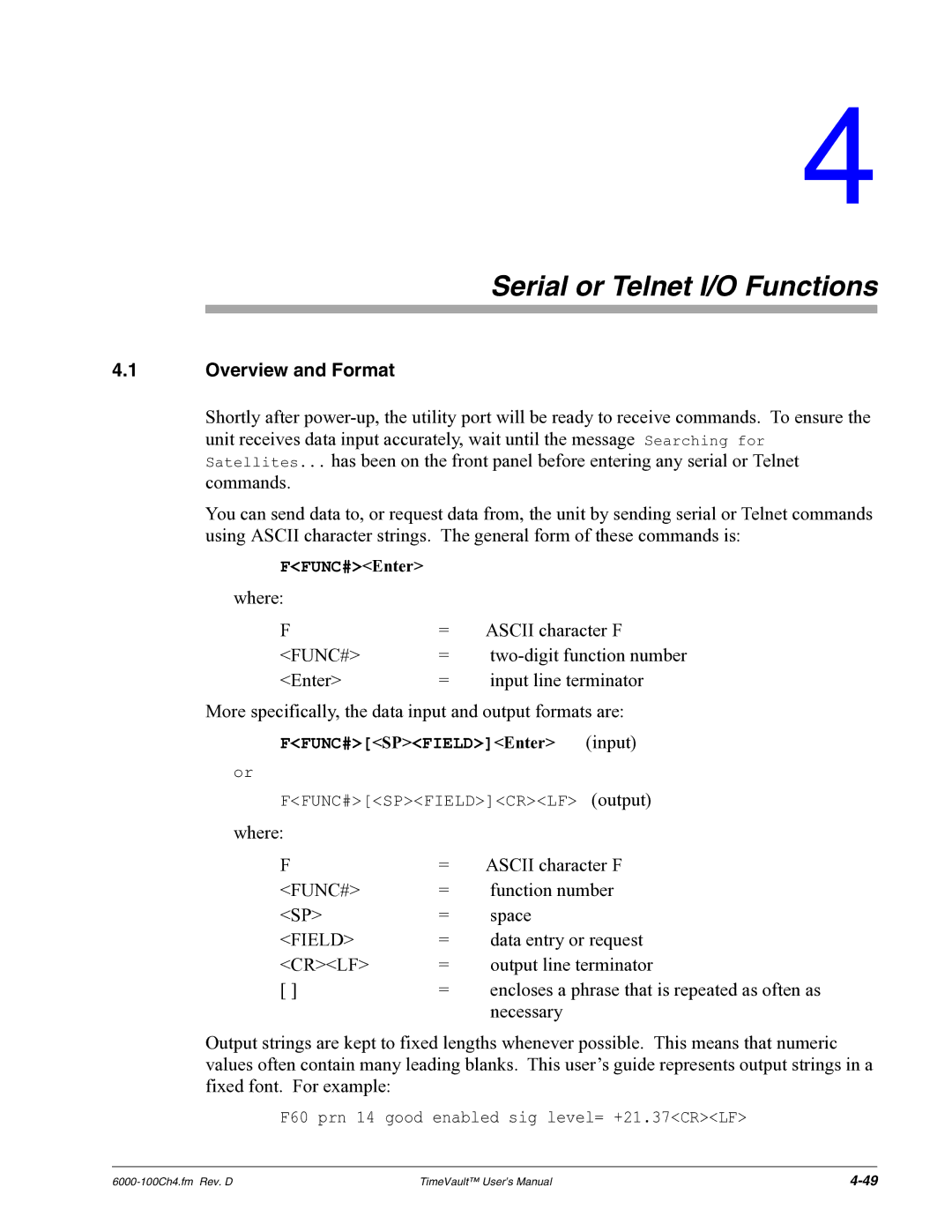
4
Serial or Telnet I/O Functions
4.1Overview and Format
Shortly after
You can send data to, or request data from, the unit by sending serial or Telnet commands using ASCII character strings. The general form of these commands is:
F<FUNC#><Enter> |
|
|
where: |
|
|
F | = | ASCII character F |
<FUNC#> | = | |
<Enter> | = | input line terminator |
More specifically, the data input and output formats are:
F<FUNC#>[<SP><FIELD>]<Enter> (input)
or
F<FUNC#>[<SP><FIELD>]<CR><LF> (output)
where: |
|
|
F | = | ASCII character F |
<FUNC#> | = | function number |
<SP> | = | space |
<FIELD> | = | data entry or request |
<CR><LF> | = | output line terminator |
[ ] | = | encloses a phrase that is repeated as often as |
|
| necessary |
Output strings are kept to fixed lengths whenever possible. This means that numeric values often contain many leading blanks. This user’s guide represents output strings in a fixed font. For example:
F60 prn 14 good enabled sig level= +21.37<CR><LF>
TimeVault™ User’s Manual |
